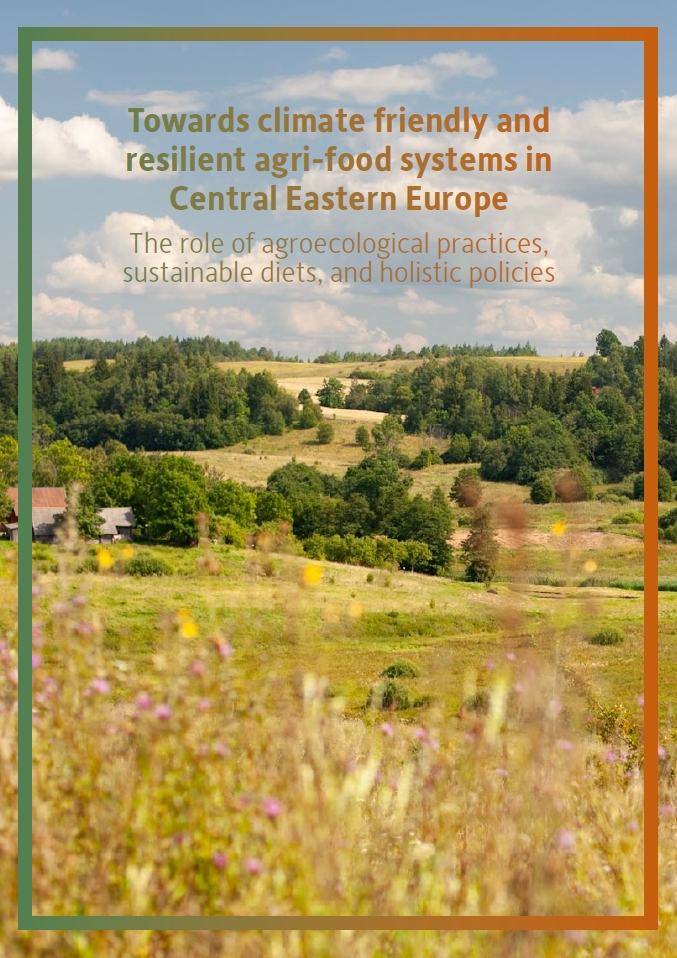How to Support the Transition Towards Climate Friendly and Resilient Agri-food Systems in Central Eastern Europe?
- Publication
- Citation
Ecologic Institute & IEEP (2024). How to support the transition towards climate friendly and resilient agri-food systems in Central Eastern Europe? Policy Brief.
This policy brief highlights the need for a systemic and integrated approach to support the transition to climate friendly and resilient agri-food systems in CEE countries. The brief underlines how the key policy instruments that countries have at their disposal – the Common Agricultural Policy, National Energy and Climate Plans, and policies to support sustainable food consumption – can be better used to support such an integrated approach. Finally, the brief points to the importance of setting clear goals, as well as developing societal support, and capacities for the transition. The policy brief summarizes in 12 languages the key recommendations from the report, "Towards Climate-friendly and Resilient Agri-food Systems in Central Eastern Europe".
The key policy recommendations in brief
The Common Agricultural Policy (CAP) and National Energy and Climate Plans (NECPs) are pivotal in supporting the transition. However, the current implementation of these policies in CEE countries shows limited impact on climate mitigation and adaptation.
Strengthening the CAP involves:
- Enhancing conditionalities around soil health, grassland protection, and peatland restoration.
- Redirecting subsidies away from intensive livestock production and towards agroecological practices, organic farming, ambitious animal welfare, peatland rewetting, and agroforestry
- Setting strong environmental and climate focus for investments, advisory support, and eligibility criteria.
- Developing evidence-based dialogue to support a fundamental reorientation of the CAP post 2028.
The NECPs need to also step up ambition for agroecological practices, organic farming, agroforestry, peatland rewetting, and sustainable livestock, as well as address dietary changes.
Food policies should shift focus from individual responsibility to creating supportive food environments for sustainable consumption, and integrate health with environment and climate goals.
Finally, increased institutional capacities, cross-sectoral policy coordination, and research are needed to coordinate and sustain the transition.
Conclusion
A coordinated and systemic approach, involving clear goals, societal support, and enhanced institutional capacities, is essential for the transition towards climate-friendly and resilient agri-food systems in CEE countries. By focusing on agroecological practices, promoting sustainable diets, and reducing food waste, the region can contribute significantly to global efforts in addressing climate change while ensuring food security and public health.
